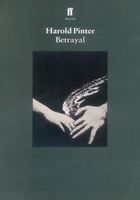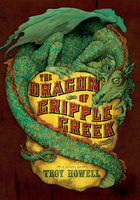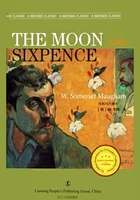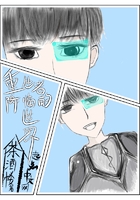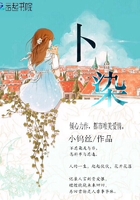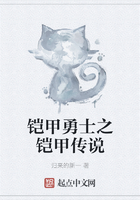TO PASHA AND MISHA, AND ADVENTURERS EVERYWHERE
I have no parents; I make the heaven and earth my mother and father.
I have no home; I make awareness my dwelling.
I have no life and death; I make the tides of breathing my life and death.
— from the Samurai Creed
1
THE STORM
January 1841 (12th Year of Temp, Year of the Ox), off the coast of Shikoku, Japan
Manjiro squinted across the expanse of glittering sea at the line of dark clouds forming on the horizon.
"What lies there," he wondered aloud, "across the sea?"
"Nothing you want to know about," Denzo said, hurrying to hoist the sail. "Barbarians live there. Demons with hairy faces, big noses, and blue eyes!"
As Jusuke steered the boat toward home, the fishermen fell silent. In three days they had not caught a single fish. Their families would go hungry. Manjiro swallowed hard when he thought of the empty rice bin at home.
He took one last glance behind them and noticed something strange. Dark streaks ran like ribbons through the water.
"Excuse me please," he said. "What is that in the water?"
Goemon, a boy not much older than Manjiro, said, "Fish!"
"Mackerel!" the others cried. Denzo quickly steered the boat into waters black with fish as the others baited their hooks.
The fishermen hurried to cast their lines into the water, then pulled them in, each time hauling in a fat mackerel. It was Manjiro's job to pluck the fish off the hooks. His hands bled, but he smiled to see the bottom of the boat swimming with plump, flopping mackerel! Wasn't it lucky he had looked back one more time? Now they would all be dreaming of dinners of steaming fish, and maybe even a little rice.
None of them noticed that dark clouds had swallowed the sky. They didn't notice the waves lapping at the boat. They didn't notice the wind until the sail ruffled, then snapped.
"Is the sail supposed to snap like that?" Manjiro asked, forgetting to apologize for his intrusion as he had been taught.
"Boy," Jusuke said, "stick to your work."
"Does the wind often howl so?" Manjiro squeaked. He knew he should not ask so many questions, but he couldn't help himself.
"Quiet, boy," said Toraemon, one of the older fishermen. "You are a pest. I don't know why Denzo agreed to bring you along. Can't you see there are still fish to catch?"
But no sooner had he said this than the wind began to roar like a dragon. The sail filled with air and yanked the boat on its side until Denzo released the line. Freed, the sail whipped about, flapping like a wounded bird. Toraemon grabbed the oars and pulled, while Jusuke tried to lower the sail. But the wind beat it against the mast until it was torn into shreds. The wind pushed the sea into great mountains of water; it tore the oars from the men's hands and flung them into the sea; and finally, it snapped the mast, then ripped the rudder away from the boat.
Without a sail, without oars, without a rudder, the boat tossed about on the heaving sea. Then a cold rain came that turned to ice. The fishermen huddled in the bottom of the boat, the rain freezing in sheets to the boat, their clothes, their hair.
Days passed. At first they ate the raw flesh of the fish they had caught, but soon the waves that sloshed over the side of the boat had swept away most of their catch.
Once they came within sight of land. They shouted and hollered, but the wind snatched their voices away. Manjiro's heart sank when he realized that the boat was not drifting toward the island, but away.
"Kuroshio," Denzo said. "The Black Current." His voice was as dark as the water that surrounded them. Everyone stared at the wide stripe of indigo water which usually flowed north, toward home. This year, for reasons they did not understand, the current flowed southeast. With no sails, no rudder, no oars, they were at Kuroshio's mercy, steadily dragged toward the vast unknown. How long until they came to the end of the ocean and fell off its edge? Would they encounter the frightening creatures and foreign devils that were said to live and sail in the far reaches of the sea?
Everybody knew about the foreign devils—the barbarians. Did they really exist, Manjiro wondered, or were they just the inventions of adults to get children to behave? Even he had told his younger sisters, "Go to sleep—or the barbarians will come and get you!"
But now, in the dark of night, the wind screaming as he bailed bucket after bucket of freezing water out of the boat, images of monsters crowded his imagination. Fanged monsters with long, slashing tails, dagger-sharp horns, and icy blue eyes.
By the eighth day of drifting, all the food and water were gone. The cold had penetrated their bones and the fishermen huddled together, prepared to die.
For a long time, no one spoke. They waited for Denzo, the eldest and the leader, to speak first. At last he said, "I was going to buy my own boat when we got home."
Everyone nodded. It was a pity. The boat to which they clung was a borrowed boat.
Next Toraemon spoke. "I was thinking of getting married."
Everyone nodded again. It was a shame he would never marry.
Then Jusuke said through chattering teeth, "I was just looking forward to a hot bath and a fish dinner!"
"With pickled turnips," added Goemon.
Presented with the thought of food, their stomachs ached more fiercely.
Finally, Manjiro, at age fourteen the youngest and so the last to speak, said, "I had hoped to become a samurai."
Everyone laughed. "In his village the fishermen's children are samurai!" Toraemon said. This made them laugh harder.
"Don't tease him," Denzo said. "Obviously, he is delirious."
Am I? Manjiro wondered. He didn't know why he had said he wanted to be a samurai. It was just what came out of his mouth.
He lay shivering, drifting in and out of fitful sleep, listening to the wind whistling through the oarlocks and the waves tsktsking disapprovingly against the boat. He had hoped this fishing trip would be a way to redeem himself after his dismal failure in his job husking rice for Imasu-san. He'd thought he'd been so clever to add stones to the grinding machine—it had taken the husks off the rice so much faster. He hadn't considered that the pebbles and stones might get ground up in the rice, too, making it impossible to eat! Imasu-san had been furious, chasing after Manjiro with a willow stick. Manjiro ran. He ran away rather than face his mother after such a foolish mistake. He would find some other work, he thought. He'd find a job in another village and come home with his pockets full of coins, perhaps! Then he wouldn't be so worthless! Now he only wished he had at least stopped to say good-bye to his mother. He could hear her voice, calling him. Over and over she called out.
Finally, he opened his eyes. It was not his mother calling. The sound was made by a large seabird wheeling high overhead.
A bird! He sat up and shook his friend. "Goemon-chan!" he said. "A bird!"
Goemon opened one eye. "It's a bird, that is true." Goemon closed his eyes again. "Ahodori—fool bird …"
"But, Goemon-chan!" Manjiro shook him again. "Doesn't a bird mean there could be land nearby?"
"Yes," Goemon sighed. Suddenly his head popped up. "Did you say land?"
The two boys shook the others, and they all stared over the side of the boat at a small, dark line on the horizon. As the boat drifted toward it, the dark line grew into a tall, looming shape: an island.
Their hearts beat a little faster. An island could mean freshwater. It might mean food, maybe shelter.
The shape of the island—a tall, flat-topped mountain—became distinct. And yet not at all distinct. Its outline was blurred, as if the skin of the land quivered!
As they drifted closer, it appeared as if pieces of the island broke off and floated up into the air. Or black specks floated down and joined the land.
"Excuse me for asking, but why does it do that?" Manjiro asked.
The fishermen became uneasy. They had drifted into unknown waters. Perhaps the island was bewitched.
They sat silently as the boat drew closer to the undulating island. Once again, Manjiro thought, his questions had led them into danger.
Then Goemon laughed. He had the sharpest eyes, and he could see what the others could not yet see.
"Birds!" he said. "Thousands of birds!"
Soon they could all see the birds soaring in the air, as well as covering the slopes of the island. There were so many birds, thousands lifting up or settling down, that the very island seemed alive.
This was a stroke of luck! They could eat birds, and if they were all fool birds, they would be easy to catch. Perhaps there would be freshwater, too, and other kinds of food.
But as the sun set behind them, illuminating the island with its final, brightest beams, their hopes faded. A barren rock face loomed ahead of them, without a hint of green anywhere. Worse, boulders rose out of the water like sharp claws ready to tear the boat to pieces. Darkness was falling and the boat rushed steadily on—toward the rocks.
2
THE SAMURAI OF BIRD ISLAND
June 27, 1841 (12th Year of Temp, Year of the Ox)
Earth. Sky. Wind. Sea.
Sometimes it seemed as if that was all there were. All there ever had been. All there ever would be.
There was this scrap of earth—just a big rock, really. And there was a cave in the rock, which offered shelter. Not warm shelter, but shelter.
There was sky, plenty of sky, all the sky you could want. Day after day it hung like a swath of blue silk, and at night like a black velvet cloak studded with cold jewels. It gave little warmth. And barely any rain.
There was the wind. Howling, growling, moaning, roaring.
And there was the glittering sea.
"Blue as a barbarian's eye," Goemon had said. "I hate the sea." They had been climbing the rocks toward the albatross nests. That was back when the fool birds were easy to catch, because they would not abandon the eggs in their nests. You could just reach out and grab them.
"Goemon-chan!" Manjiro had scolded his friend. "How can you say you hate the sea?"
"I know, I know," Goemon said. "The sea has a powerful kami, but look at her! She is so cruel! Nothing but water as far as you can see, yet can we drink even a handful? Full of fish, yet can we catch one? When we get out of here, I'm never going to look at the sea again."
"But you are a fisherman, Goemon-chan," Manjiro had said. "How will you fish, if you never look at the sea?"
"I shall wear a blindfold," he said.
Manjiro laughed.
That was back when they used to laugh. Back when there had been birds, thousands of albatross flopping about on their enormous feet, clacking their bills and flapping their huge wings.
But that was then.
Now Manjiro hung over a rock ledge, groping with his fingers on the underside for any clinging shellfish or strip of seaweed. Something to bring back to the others, who were too weak to leave the cave. With his back to the sky and his belly pressed to the earth, Manjiro stared down into the blue eye of the sea.
The water was so clear, he could see straight to the bottom. A snail was making a path like a shiny ribbon slowly unfurling on the sand. How does a snail move when it has no feet? he wondered. And where was the tiny creature going with such purpose?
Manjiro watched it, losing himself in its slow, graceful movement. He remembered how the days had passed, so many sunrises fading into sunsets, until finally he had lost count.
There had been the first day, of course, the day their little boat had splintered on the rocks. Manjiro, Goemon, and Toraemon dove in just before the boat capsized, but Denzo and Jusuke had been trapped underneath. Eventually, all five made it to shore, but Jusuke's leg was injured in the struggle. Still unhealed, Jusuke never left the cave.
There had been the day the earth shook and rocks tumbled down, blocking the entrance to their shelter. But they had been able, with all of them pushing, to roll the rocks away. That was back when they had enough strength for work like that.
The few days the sky had given up some rain were very good days. Rain pooled in the depressions and cracks in the rock. The fishermen collected water in eggshells and the bucket that had drifted ashore, but nothing held enough to last until the next rain. They rationed their water: one oyster shell per bird eaten. That was back when there had been water. And birds.
There had been so many birds, they had gotten sick of them.
"Oh, for a cucumber!" Goemon had said one day. "A bite of sweet potato! I am soooo sick of raw bird."
But Manjiro had an idea. "Let us cook them today, Goemon," he said.
"Yes, let's, with a nice rich sauce and many spices. …," Goemon teased, but then grew serious. "Manjiro-chan, you know our flint and steel are on the bottom of the sea. We have no fire."
"I've been thinking, though," Manjiro said. "Maybe there's another way."
They skinned the birds as usual, with the fish spears they'd salvaged from the boat wreck. Next, they pounded the bird meat with stones until it turned into a kind of paste.
"Now we'll let the sun bake it," Manjiro said, smearing the paste on a rock. "All we have to do is wait."
While they waited, they stared out across the ocean, toward the northwest—toward home. Manjiro's stomach tightened with worry. How was his family getting along without him? Were his little sisters gathering taro in the mountains, trying to find something to eat? Oh, how he wished he could fly like these birds, wheeling and caterwauling above them! He would fly home to his family; he could take them a fish in his beak!
"Thinking about home?" Goemon said.
Manjiro nodded.
"I guess you'll never become a samurai now, huh, Manjirochan?"
"Why not?" Manjiro asked.
"Even if we should get home, you know very well you can't be. You weren't born into a samurai family. You were born a fisherman's son and you will be a fisherman, and any sons you have, they also will be fishermen. That is the way it is; that is the way it has always been; that is the way it will always be."
Manjiro sighed. That was always the reason; that had always been the reason; and, he supposed, that would always be the reason.
"Why would you want to be a samurai anyway? So you could beat up on poor peasants like us?" Goemon asked.
Goemon had probably never actually seen a samurai. Manjiro certainly hadn't. His village was far away from the hub of government and power, where most of the samurai spent their time, but of course he had heard stories. Before Manjiro's father had died, he had taught Manjiro about Bushido, the samurai code of honor.
"I wouldn't be that kind of samurai," Manjiro said. "I'd be like the noble samurai of old times: heroic warriors who were loyal to their lords, and who studied calligraphy and poetry as well as the art of fighting."
"We can never go back to Japan, you know," Goemon said, staring across the sea.
"Why not?"
"The law says, 'Any person who leaves the country and later returns will be put to death.'"
They brooded on this in silence.
Finally, Manjiro said, "But why?"
"Because, if we were to encounter any of the foreign devils, we would be poisoned by them."
"Poisoned!" Manjiro said.
"Maybe not our bodies, but they will poison our minds with their way of thinking. That's why no fishermen are allowed to go very far from the coast—they say 'contamination lies beyond the reach of the tides.' The barbarians would fill our heads with wrong thoughts!"
"What kind of wrong thoughts?" Manjiro said.
"Manjiro-chan, you ask too many questions," Goemon said.
"I know," Manjiro said. "I'm sorry." He hung his head, but then looked up again. "I hope the barbarians will never find us. May the gods protect us from them!" he cried. Then he plucked up two pieces of driftwood of unequal length. He bowed to his friend, presenting the smooth, worn sticks in both his outstretched hands.
"Oh, honored friend," he said, "I present your katana—your long sword. And your wakizashi—your short knife."
Then he took two smooth pieces of driftwood of unequal length for himself. He shoved the short piece into the cloth belt he wore around his waist and waved the other one like a sword, challenging Goemon.
"We can't carry swords," Goemon said. "You know that."
"May I humbly suggest," Manjiro said, "that on this island, we are the rulers—we are the Samurai of Bird Island. And from now on we shall live by Bushido. And we shall defend our honor and our island and each other against the blue-eyed barbarians." He leaped up onto a rock and swung his stick over his head. "Agreed?"
Goemon jumped up. "Agreed," he said, jamming his "knife" into his sash and slashing at Manjiro's "sword." Their imaginary swords clashed and clattered as they lunged or leaped aside to avoid being hit.
Manjiro had just knocked Goemon's stick from his hand when he felt his own stick snatched away from him. He turned to see Denzo frowning at them both.
"Do you think this is a picnic?" Denzo barked. "You boys were sent to find water and food, not to play at sword fighting."
The boys quickly bowed to Denzo, then pointed at their meat cooking on the rocks.
Denzo squinted at it. "What is that?" he said.
"Stone roast!" Goemon said.
Manjiro laughed. Even Denzo couldn't help but smile.
After that they made stone roast often. It wasn't delicious, but it was at least different from eating raw bird meat.
That was back when they had bird meat, back when the island had been alive with feather-fluttering, wing-flapping, beak-clacking, mooing, cooing, belly-flopping birds. But in the course of a few months, it had come to an end. The babies that were hatching when the fishermen first landed had grown up. Once they were strong enough, all the birds flew away.
One day Manjiro and Denzo had agreed it was worth climbing the big hill to look for water. The two of them clambered up the rocky slope. At the top, Manjiro noticed two oblong piles of stones. He stared at them for a long time thinking that they reminded him of something.
"Denzo-san," Manjiro said. "Excuse me for interrupting your thoughts, but what are—?" he broke off, realizing what the piles of rocks were. "Graves!" The word escaped his mouth.
Denzo chanted, "Namu Amida Butsu—Buddha of Infinite Light." They wept to think that people had been here before them, people who had died!
"Where do you think they came from?" Manjiro wondered. "Do you think they were our countrymen?"
Denzo just shook his head, and with heavy steps, they plodded back to the cave. Manjiro thought about never seeing his family again. What would happen to his family without him bringing home fish, a little rice—even the mushrooms and ferns he used to gather in the forests that had helped keep them alive? Would they starve? Would there be graves for all of them, too?
The ache he had felt when his father died had been a sharp pain at first, but had dulled over time until he hardly noticed it. But now, like a sore muscle, the pain flared up again. He longed for his mother, and for his dead father, too. Imagining himself dead in one of those graves made him even miss himself!
When Denzo told the others about what they had seen, the gathering grew solemn.
"That could be our fate," Toraemon said.
"I have thought that also," said Denzo.
Everyone turned to Jusuke, who heard none of this conversation. He tossed and moaned, in the throes of fever.
Tears streamed down their faces. None of them wanted to have to bury any of their friends.
Manjiro felt the darkness about to swallow them. But he pushed it away. He had thought of something.
"Please pardon me, friends," he said softly, "but I have a question."
Toraemon said sharply, "Manjiro, now is not the time—"
But Denzo laid a hand on Toraemon's arm and said to Manjiro, "What is it?"
"There were two graves, right, Denzo-san?" Manjiro said.
Denzo nodded.
"My question is: Where is the third person?"
Everyone stared at Manjiro.
"Who made the graves?"
Of course, he was right—someone had to have survived to bury the others.
"Maybe," Manjiro said, brightening, "maybe whoever survived was rescued!"
This idea heartened them; they lay down to sleep a little less burdened.
That night their beds were more comfortable than before—Toraemon and Goemon had salvaged some planks that had washed ashore from their broken boat. So instead of stretching out on cold rock, they each had a wide board on which to sleep.
"Please excuse my intrusion," Manjiro whispered, "but thanks for the planks." When the others chuckled, he smiled. He had pushed aside the darkness for the time being.
Much time had passed since then, and now, hanging over the rock ledge staring at the snail in the water, Manjiro wondered how much longer they could last. There was so very little to eat. There was so little water, they had even tried drinking their own urine. Those rocky graves would not leave his thoughts.
He had not found any shellfish or seaweed clinging to the rock, and he had spent too much time watching the snail. But the snail had created such a beautiful design in the sand, like a kare-sansui, a Zen garden. Yet not created, Manjiro realized—traced. The snail had taken its long, arduous journey to trace—
"My face!" Manjiro whispered. The shadow of Manjiro's face must have seemed like an island of shade in the bright sea. The snail and I, Manjiro thought, are alike. I trace out the length and breadth of this island every day, pacing around and around its face. Like the snail, I have no idea of all that lies beyond.
Beyond this island was a world about which Manjiro knew nothing. It was, perhaps, a huge world. It might be a frightening place, full of demons and monsters. But it might be a dazzling world, full of wonder and mystery. It might be, he thought, very beautiful. If only he had wings, he could fly across the ocean and see all there was to see. Then he would fly home, his beak full of food, his head full of wonders.
Manjiro stood to look out beyond the edges of his island. But standing up so fast made him dizzy. The sky, the sea, the earth all spun around him, in a blur of blue and green and gray, as if he'd been twirling and twirling.
That is why he did not notice the boats at first.
And that is why, when he did notice the boats, he didn't believe he really saw them.
Two small boats moved toward the island.
Manjiro's heart beat deep in his stomach. His already weak limbs felt numb. The world began to spin again and he thought he might faint.
"Boats!" he croaked. Finding his voice, he shouted, "Rescue!"
The boats were not coming straight toward him, though, but toward a different part of the island.
With strength he didn't know he had, Manjiro plunged into the sea and swam, head down, toward the boats.
When he finally reached one of them, he raised his head and looked up. He could not lift his arm to reach out. His blood turned to ice, and dizzy again, he felt himself sinking. For when he had looked into his rescuer's face, he had gazed into a pair of eyes as blue as the sea.


